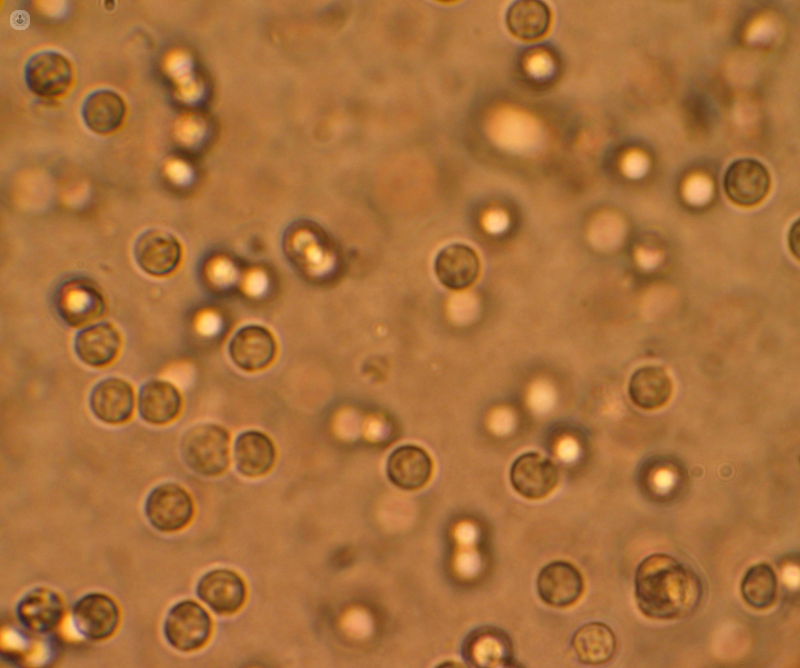


What is haematuria?
Haematuria is the presence of blood in the urine. The blood may come from the kidney (where urine is formed) or any other part of the urinary tract. The urinary tract includes the ureters (the tubes connecting each kidney to the bladder), the bladder, the prostate (in men) and the urethra.
In most cases, haematuria is not serious. Nevertheless, the cause should be sought because in exceptional cases the cause may be a serious disease.
There are two types of haematuria:
- Macroscopic haematuria: the blood is visible, as it has turned the urine pink, reddish or brownish. If you see blood in your urine, you must consult with a doctor immediately.
- Microscopic haematuria: the colour of urine is normal, but red blood cells can be seen under a microscope. This is usually detected during a standard urine analysis.
Symptoms of haematuria
Macroscopic haematuria causes the urine to change colour, as mentioned above, due to the presence of red blood cells. Urine turns red with even a small amount of blood, and the bleeding is not usually painful. However, excretion of blood clots in the urine may be painful. Generally, there are no other signs or symptoms associated with haematuria.
What are the causes of haematuria?
- Bladder infection, which usually causes a burning sensation or pain whilst urinating.
- Kidney infection.
- Kidney stones, which usually cause pain in the back or sides.
- Certain kidney diseases.
- Excessive exercise or injury.
- Growth of the prostate.
- Cancer of the bladder, prostate or kidney.
Can haematuria be prevented?
In many cases, haematuria cannot be prevented. However, the risk of developing one of the underlying diseases that leads to haematuria (listed below) can be reduced by taking certain measures:
- Urinary tract infections: try to ingest sufficient liquids, urinate when necessary and, for women, wipe away urine from the front to the back.
- Kidney stones: ingest sufficient liquids and limit your ingestion of salt and proteins.
- Bladder cancer: ingest sufficient liquids, stop smoking and avoid exposure to chemicals.
- Kidney cancer: stop smoking, maintain a healthy body weight and pursue a healthy diet.
What is the treatment for haematuria?
The treatment varies according to the cause. It may consist of antibiotics to eradicate a urinary tract infection, medication to attempt to reduce the size of an enlarged prostate or shockwave treatment to dissolve stones in the kidney or bladder. Follow-up will be required to verify that there is no blood in the urine. In some cases, treatment is not necessary.
